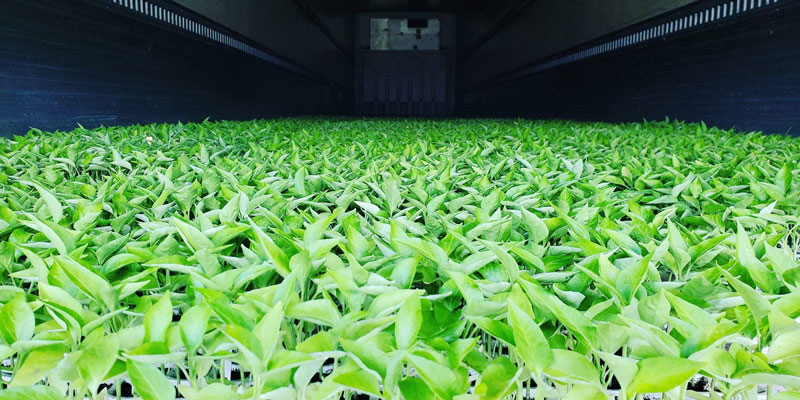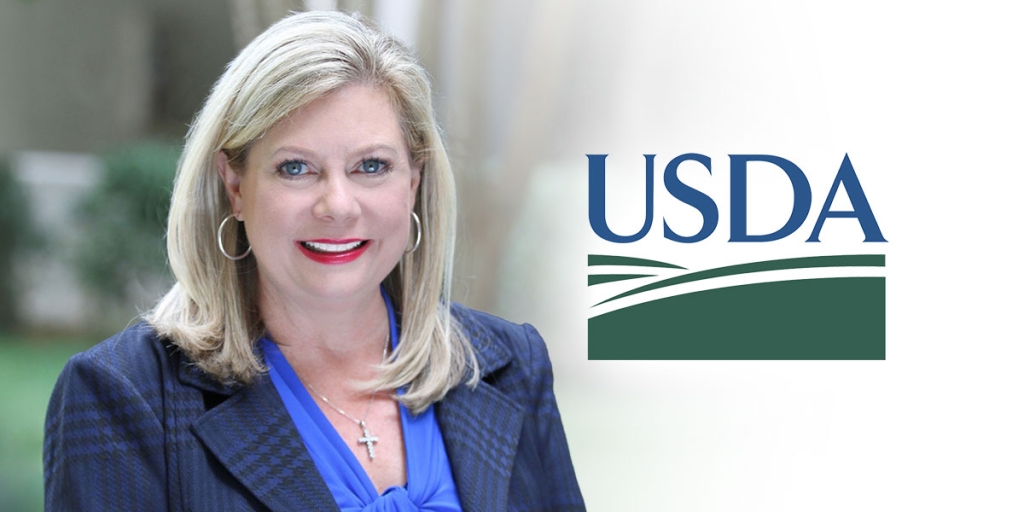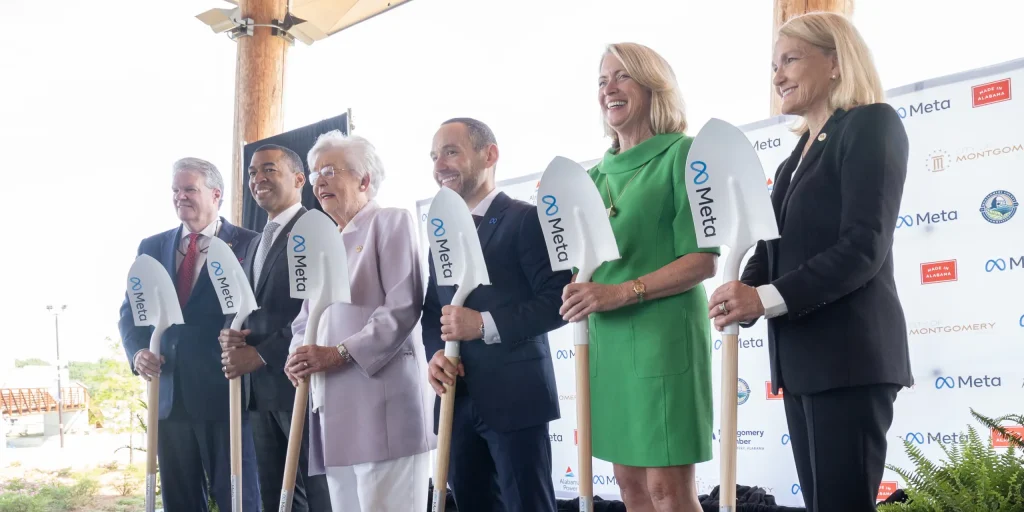TUSKEGEE, Alabama – A startup, minority-owned organic farm in Macon County is expanding its crops and customer base, fueled by an ambitious vision to carry on the region’s rich history of agricultural innovation.
Lifetime Natural Organic Farm, which includes about 25 acres of raised-bed bio-intensive organic vegetables, this year invested an additional $500,000 to increase plantings and seek new business.
The move, which brought the farm’s total capital investment to $1 million, is paying off in a big way. Lifetime, already a supplier to Whole Foods stores in Alabama, recently began selling to the grocery chain’s Braselton, Georgia, distribution center that serves 400 locations.
The farm also is now selling to Albert’s Organics, one of the largest organic produce wholesale distributors in the U.S. It also supplies Publix stores and has begun supplying Alabama schools, with orders for nearly 30,000 heads of organic lettuce for Elmore County Schools’ summer feeding program over the next two weeks.
Lifetime is believed to be the largest USDA-certified organic farm in Alabama, and owner Nelson Wells wants to grow it even more, to the largest in the Southeast.
At the same time, he wants to deepen its roots in Tuskegee and Macon County. Wells was drawn to the area after one of his advisors invited him to Tuskegee University to watch a video about the institution’s history, its founder Booker T. Washington and the work of George Washington Carver.
Learning more about the famous African American scientist and inventor Carver – who developed hundreds of uses for peanuts, sweet potatoes and soybeans and transformed U.S. farming practices during his tenure at Tuskegee – struck a chord with Wells and his own biracial heritage.
“That changed my heart,” he said. “It made me want to be a part of the rich history of Macon County and Tuskegee, Alabama. I’m half black and half white, and I saw how important it was to continue the legacy of what George Washington Carver was to the world. He was at the forefront of modern agriculture.”
GROWING RELATIONSHIPS
Wells isn’t your typical Alabama farmer. The 6-foot-6-inch California native is a vegetarian and former surfer who played football for the University of Southern California before he moved to Alabama to be closer to his family.
Promoting healthy living through clean eating has been a lifelong passion for Wells. He and his family have been involved in running another organic farm in Verbena, and he and his partners courted Tuskegee for several years with their plans for a commercial organic farm.
Carver’s imprint on the region was a big draw, as was the opportunity to collaborate with agricultural researchers at Tuskegee University. Wells has begun building relationships with professors and students.
Lifetime started last year as a joint venture with the Macon County Economic Development Authority. The MCEDA provided the land, a former hayfield purchased and owned by MCEDA as a potential industrial site, as a “proof of concept” farm.
That growing season went well, and this year, Lifetime expanded its farming area from 10 to 25 acres and tweaked its crop mix to match the demand of its existing and targeted customers. Products include all types of bell peppers, sweet peppers, watermelon, tomatoes and leafy greens.
GAINING ACCESS
Across Alabama, there are 20 to 25 certified organic farms and possibly another 100 or so that follow organic practices but are not certified organic, said Don Wambles, director of Agriculture Promotion for the Alabama Department of Agriculture and Industries.
To his knowledge, Lifetime is the largest USDA-certified organic farm in the state, he said.
Wambles and his office assisted Lifetime with gaining access to markets and also provided direction on applicable USDA programs.
The state offers many advantages for all types of farmers, he said.
“Alabama has a great climate and abundant water resources to allow agriculture to be bountiful. We are a very diverse state, which allows producers to choose whether they want to grow organically or conventionally. We have an abundance of customers for either production system the farmer chooses and we support all farmers.
“With Lifetime’s commitment to grow even larger, they will be able to meet the demand for locally grown organic produce while creating jobs and assisting the economic health of their community and surrounding communities,” he said.
NEW GROWTH SECTOR
An organic farm isn’t a typical economic development project, but it’s one that is well-suited for rural areas, said Joe Turnham, director of the MCEDA.
“As economic developers, we’re all so programmed to go out and get industrial sites, and we should, but very rarely do we think about going out and getting a tract for an ag startup,” he said.
Lifetime has provided new jobs for 20 to 30 people in the community, and it represents new business for utilities and other local services, Turnham said.
Another notable benefit is that the type of products and processes involved in organic farming are not common in the South, so Lifetime is helping to forge a new growth sector.
“Our strategic plan has always called for an agricultural component of economic development in Macon County,” Turnham said. “We’re the home of George Washington Carver, and we really wanted to have a purposeful, high-value project for that agricultural vision. This fits perfectly.”
In addition to the farm’s land, MCEDA has provided in-kind services and also helped the farm’s operators make valuable connections, such as those with state agriculture officials and others at Tuskegee University.
“Last year, they hit every milestone and had beautiful crops. It wasn’t quite what buyers wanted, but they proved they could do it. This year, they are growing to meet the demand profiles of Whole Foods and Publix,” he said.
Turnham said he is excited about the farm’s growth potential.
“We have a gentleman’s agreement that once they’re really profitable, maybe there will be a small rent or royalty that comes back to MCEDA that we can put toward helping the next company.”
BUILDING ON A LEGACY
Along with expanding its existing customer base, Lifetime aims to do more in promoting organic farming from its home base in Macon County.
The farm is participating in Sweet Grown Alabama, a new marketing effort by the Alabama Department of Agriculture and Industries to promote farmers and products across the state.
“Our goal is to have a vegetarian restaurant here in Tuskegee, and we would also like to do farming and cooking demos here,” Wells said. “We want to increase the understanding of the importance of healthy eating and its effects on the body and mind.”
Beyond that, Wells wants to continue growing ties with Tuskegee University and collaborate on research involving organic farming.
“My dream is to continue the legacy of George Washington Carver and Tuskegee University that was the forefront of modern agriculture at one time,” he said.
“This could change the world in organics.”
(Courtesy of Made in Alabama)













